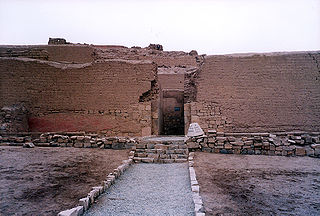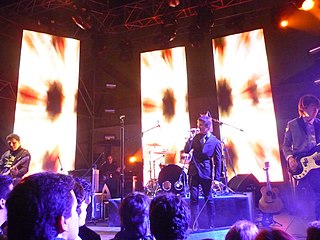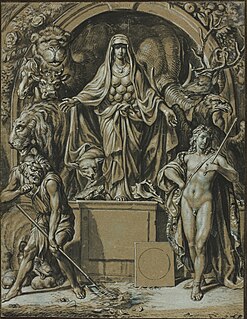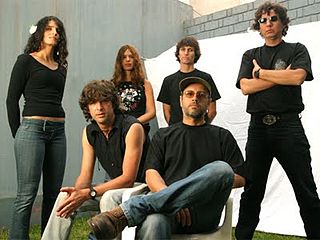Pachamama is a goddess revered by the indigenous people of the Andes.

Pachamama is a goddess revered by the indigenous people of the Andes. She is also known as the earth/time mother. In Inca mythology, Pachamama is a fertility goddess who presides over planting and harvesting, embodies the mountains, and causes earthquakes. She is also an ever-present and independent deity who has her own self-sufficient and creative power to sustain life on this earth. Her shrines are hallowed rocks, or the boles of legendary trees, and her artists envision her as an adult female bearing harvests of potatoes and coca leaves. The four cosmological Quechua principles – Water, Earth, Sun, and Moon – claim Pachamama as their prime origin. Priests sacrifice llamas, cuy, and elaborate, miniature, burned garments to her. Pachamama is the mother of Inti the sun god and Mama Killa the moon goddess. Pachamama is said to also be the wife of Inti, her son.
Pachamama or Pacha Mama may also refer to:
- "Pacha Mama" (song), the second movement of Mike Oldfield's 1999 album The Millennium Bell
- Pachamama (1944 film), Argentine film that won two honors at the 1945 Argentine Film Critics Association Awards
- Pacha Mama (peak), highest point on Peru’s island Amantaní in Lake Titicaca
- Pachamama (song), single by the Peruvian band Uchpa
- Pachamama (film), Netflix Original film.
- Pachamama (wasp), a wasp genus in the family Trichogrammatidae
- Pachamama Cine, Argentine film distributor for the 2007 film La Antena
- Pachamama, 2008 Brazilian documentary directed by Eryk Rocha
- Pachamama, French and Argentine 2018 animated film directed by Juan Antin
- Pachamama, 1986 album by Bolivian quintet Rumillajta
- Pacha Mama, 1991 album by Chaski
- Pachamama, two-part EP released in 2012 by Raine Maida
- Pachamama, a Serbian Latin American music band recorded on the 1996 album Muzičke paralele
- "Pachamama (la terre mere)", 2013 single by French–Armenian singer Patrick Fiori
The 1945 Argentine Film Critics Association Awards ceremony was held in Buenos Aires on 4 January 1945 to honour the best films and contributors to Argentine cinema in 1944.
Uchpa is a Quechua-singing Peruvian hard rock and blues band. Freddy Ortiz formed the band in 1994.
Pachamama is a 2018 French-Luxembourgian-Canadian animation film directed by Juan Antin and written by Christophe Poujol and Juan Antin.












